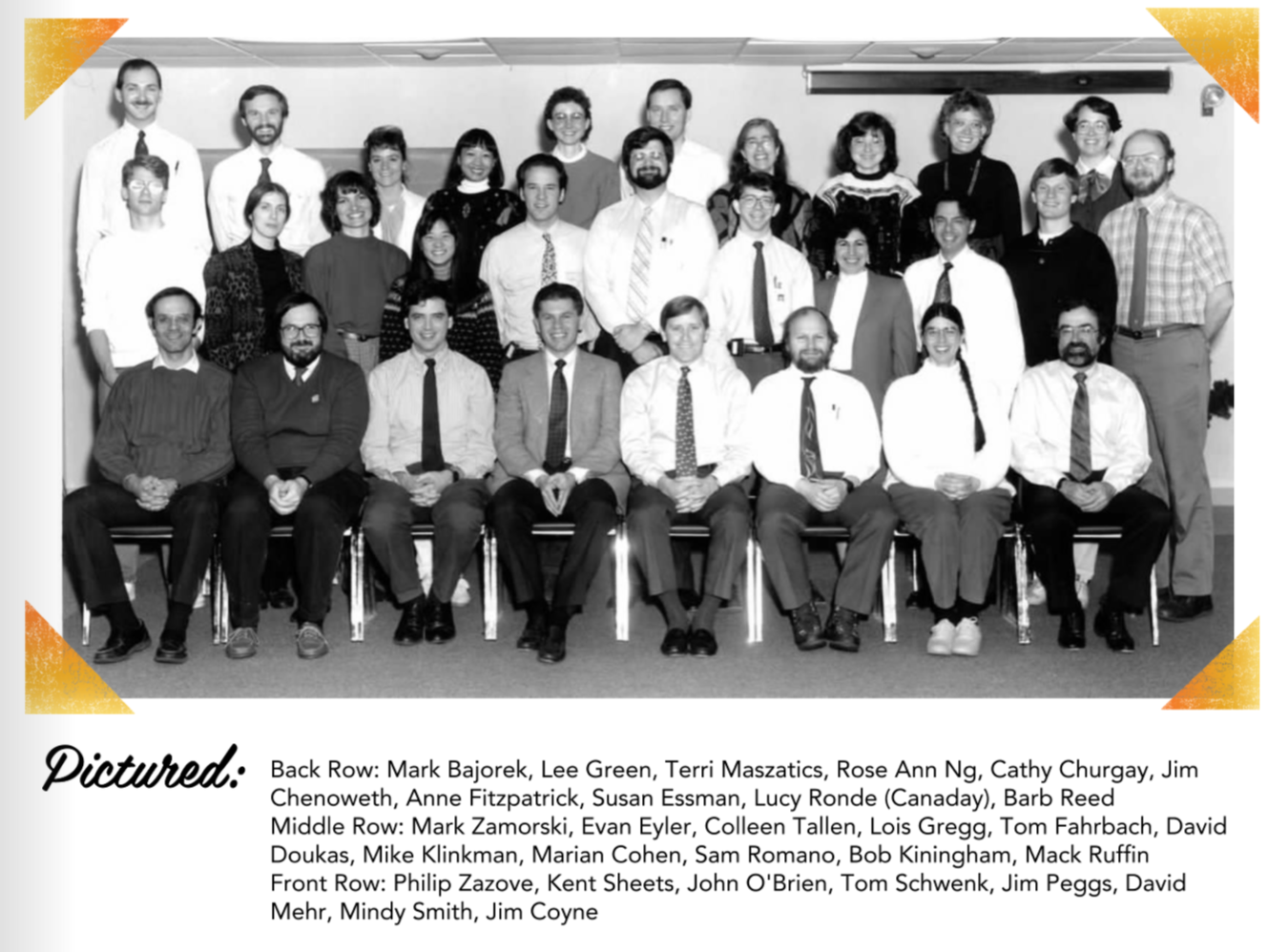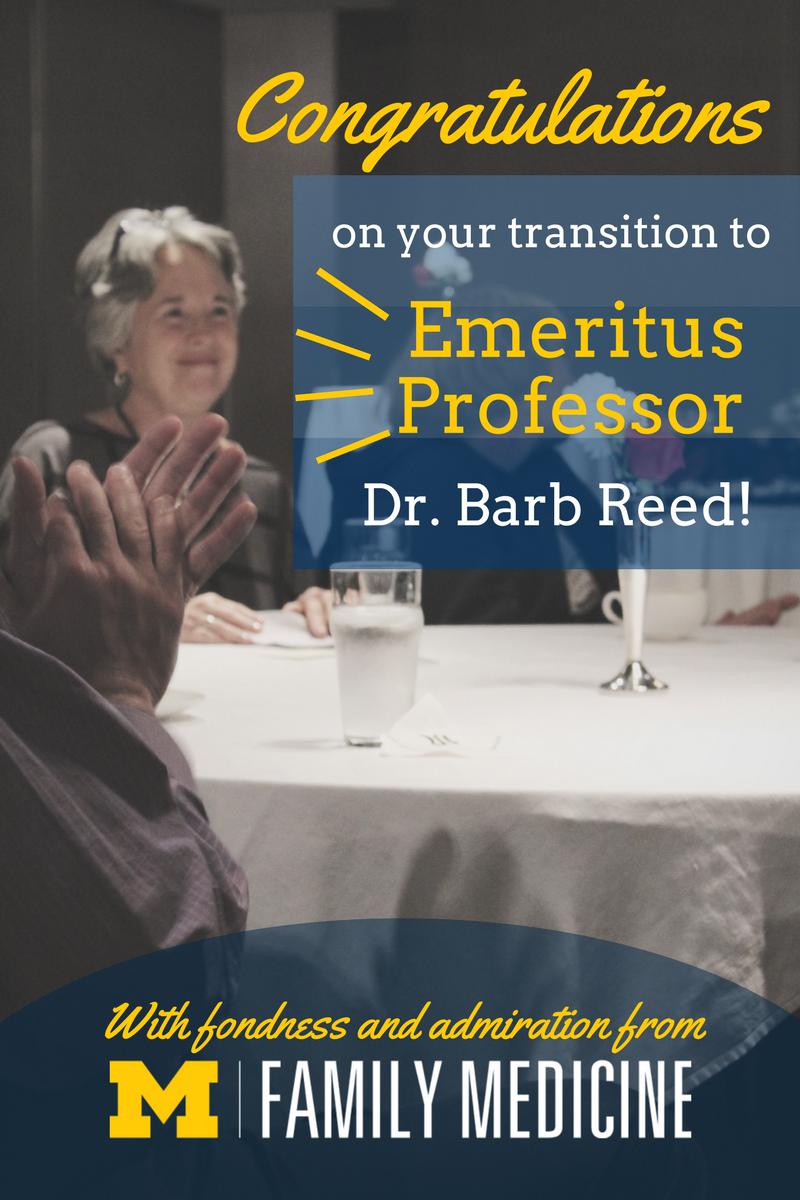
Earlier this year, the department had to say farewell to Emeritus Professor Barbara Reed, M.D., M.S.P.H., as she transitioned to "actively" retired emeritus status in January 2017. In her over 30 years as a family physician, Dr. Reed carved her own professional path, marked by compassionate research, steadfast mentorship, and committed service to both her patients and to the profession.
The latter service was recently recognized by the American Academy of Family Physicians. Dr. Reed was awarded Life Member status by the AAFP, for her "long-term support of the organization and the speciality of family medicine."

Validating women's pain through medical research
Dr. Reed has devoted much of her career to uncovering the hidden experiences of women and girls experiencing vulvodynia, a relatively common, yet rarely diagnosed chronic condition defined by vulvar pain. Over many decades of academic research, Dr. Reed led epidemiological and pathophysiological studies that have shaped our medical and scientific understanding of vulvodynia. With over 80 publications in peer-reviewed journals, Dr. Reed is regarded as a world-renowned expert on the condition and has devoted over 30 years of clinical service to the health of women and girls.
A leader among colleagues

Since joining the Department of Family Medicine at U-M in 1989, Dr. Reed has helped shape the department in ways both large and small. She served as chair of the research development committee from 1992 to 1995 and as Associate Chair for Research from 1995 to 1997. Notably, Dr. Reed was also mentor to the first family medicine post-doctoral fellow at the University of Michigan.
Sharing Memories
Barb's real impact, beyond her double-digit CV, is best summed up by her colleagues and friends:
One colleague noted, "I can't think of anyone more professional and at the same time so genuine and kindhearted."
Another noted, "Your research has forever changed the lives of so many women. What a legacy!"
One of the many women's health researchers Dr. Reed mentored over the course of her career, shared: "I did not even fully understand what a mentor was until I started working with you. I have learned so much from you beyond womens' health research. You embody so many of the qualities: talented researcher, women's health champion, empathetic clinician, loving parent, supportive mentor that, coupled with your down-to-earth nature, make you a truly inspiring role model to emulate."
A former patient recalled her reaction to losing Dr. Reed as her doctor, "I remember my sadness...I kept thinking maybe clamydia wouldn't be so bad if I could keep you as my doctor."
We are privileged to call Barb our colleague, mentor, leader, and friend. We wish her the best in her active retirement!



